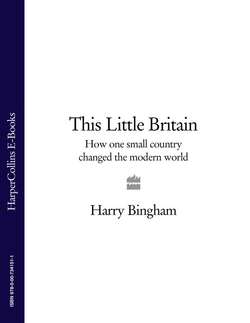Читать книгу This Little Britain: How One Small Country Changed the Modern World - Harry Bingham - Страница 10
A as in neighbour
ОглавлениеAll the problems so far mentioned fade into insignificance compared with the one identified by the A in Shaw’s potato.
Just as the Masters of Chancery were producing the first rational spelling system in English, something was going on to turn all their fine work on its head. This was the Great Vowel Shift, which did exactly what it said on the tin. Before the shift, English vowels had been much the same as their Continental neighbours. The word fine in English used to be pronounced with an ‘ee’ sound, like the Italian fino (‘fee-no’). If a fourteenth-century speaker of English had encountered a sentence like ‘I see my goat is lame—my cow too’, they’d have pronounced it approximately as: ‘Ee say mee gawt ays lahm—mee coo toe’
This sounds odd to us, but only because we’re not used to it. At least English used its vowels in more or less the way you’d expect given its ancestry. Then, for no known reason, the vowels decided to get up from their fixed positions and wander round till they settled again in new places. The Chaucerian ‘ee’ sound became the modern ‘eye’ sound, the Chaucerian ‘ay’ became the modern ‘ee’, and so on.
The process was both strange and not strange at the same time. In some ways, nothing much could be more ordinary. Language changes. If you want a scone, do you ask for a scohne or a sconn? If you talk about dust, do you use the southern ‘uh’ sound, or the shortened Yorkshire ‘oo’ sound? If a Brummie moves to a new part of the country—Liverpool, say, or Glasgow or Cornwall—they may well start to modify their vowel sounds, almost without noticing it. The Great Vowel Shift was in a way no odder than that—and bear in mind that it took place over two centuries, or the space of five or six medieval lifetimes.
On the other hand, the process is also a little odd. Why did English change so much and its closest neighbours little or not at all? And what propelled the movement? There is no shortage of theories. Social upheavals following the Black Death is one possibility. Another is that as the French-speaking ruling class came to speak English, there was a vogue for a kind of patriotic hypercorrection of French vowel sounds. But no one knows for sure. It’s just one of those things.
The one certainty, however, is that English spellings were fixed before, during and after the shift. A word like polite (around before the shift) simply saw its pronunciation change, from something like pol-eet to the modern pol-ite. But an almost identical word—police—which entered the language after the shift reflects the Continental ‘ee’ sound of its origin. The result, of course, is that there’s no way to tell in advance how a word should be spelled, or how a spelling should be spoken. Fine for those who grow up with the language; murder for those who have to learn it.
